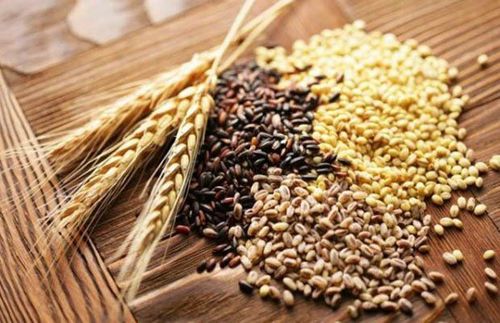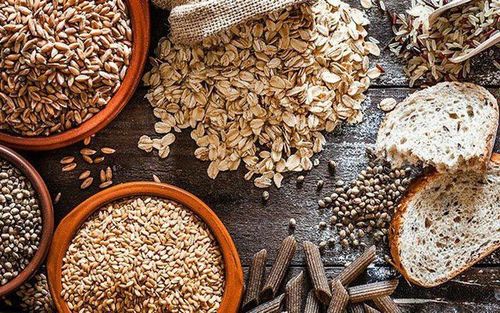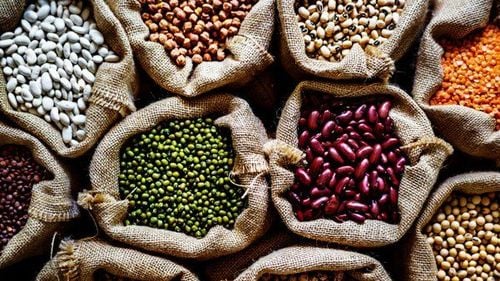This is an automatically translated article.
Barley is one of the most widely consumed grains in the American diet. This versatile nut has a slightly tart and nutty flavor that can be added to many dishes. It is also believed to provide many health benefits to the human body.
1. Rich in beneficial nutrients
Barley is rich in vitamins, minerals and other beneficial plant compounds, often available in a variety of forms, from whole barley to barley flour.
When consumed as a whole grain, barley is an especially rich source of fibre, molybdenum, manganese and selenium. It also contains large amounts of copper, vitamin B1, chromium, phosphorus, magnesium and niacin. Additionally, barley contains lignans, a group of antioxidants that may help reduce the risk of cancer and heart disease.
2. Reduces hunger and aids in weight loss
Barley can reduce hunger and promote satiety, both of which can aid weight loss over time.
Barley helps reduce hunger through its high fiber content. A soluble fiber called beta-glucan is particularly helpful in this regard.
That's because soluble fibers, such as beta-glucan, tend to form a gel-like substance in the human gut, slowing the digestion and absorption of nutrients. In turn, this curbs one's appetite and promotes satiety.

Ăn lúa mạch giúp hỗ trợ giảm cân
3. Soluble and insoluble fiber content improves digestion
Barley can boost your gut health. Most of the fiber found in barley is insoluble fiber. Instead of dissolving into water, this type of fiber adds bulk to the stool and speeds up bowel movements, helping to reduce the likelihood of constipation.
The soluble fiber content of barley provides food for the beneficial bacteria in the gut, which in turn produce short-chain fatty acids (SCFA). Research shows that SCFAs help nourish intestinal cells, reduce inflammation, and improve symptoms of intestinal disorders such as: irritable bowel syndrome (IBS), Crohn's disease and ulcerative colitis.
4. Prevent gallstones and reduce the risk of gallbladder surgery
The high fiber content in barley can also help prevent gallstones.
Gallstones are solid particles that can form on their own in a person's gallbladder, a small organ located under the liver. The gallbladder produces bile acids that the body uses to digest fats. Over time, large gallstones can become trapped in the cystic duct, causing severe pain. Such cases usually require surgical removal of the gallbladder.
The type of insoluble fiber found in barley can help prevent the formation of gallstones and reduce the likelihood of gallbladder surgery; For every 5 gram increase in insoluble fiber intake, the risk of gallstones is reduced by about 10%.

Bổ sung lúa mạch trong chế độ ăn uống giúp giảm thiểu việc hình thành sỏi trong túi mật
5. Lower cholesterol
Barley can also lower your cholesterol levels. The beta-glucans found in barley have been shown to reduce bad LDL cholesterol by binding to bile acids.
In one study, men with high cholesterol were fed a diet rich in wheat, brown rice, or barley. After five weeks, those given barley had reduced their cholesterol levels by 7% more than the participants on the other two diets. What's more, the barley group also had the greatest increase in HDL cholesterol and the largest reduction in triglyceride levels.
6. Reduce the risk of heart disease
Barley can reduce certain risk factors, in addition to lowering levels of bad cholesterol (LDL), the soluble fiber in barley can lower blood pressure. High blood pressure and high LDL cholesterol are the two best known risk factors for heart disease. Therefore, reducing these two indicators can be beneficial for the cardiovascular system.

Lúc mạch giúp ngăn ngừa các bệnh lý về tim mạch
7. Reduce the risk of diabetes
Barley may reduce the risk of type 2 diabetes by lowering blood sugar and improving insulin secretion.
Barley is also rich in soluble fiber, which binds with water and other molecules as it moves through the digestive tract, thereby slowing the absorption of sugar into the bloodstream.
In one study, participants with impaired fasting blood sugar were given either oatmeal or barley flour daily. After three months, blood sugar and insulin dropped 9% to 13% faster for those who ate barley
8. Reduces the risk of colon cancer
A diet rich in whole grains can generally reduce the risk of many chronic diseases, including some cancers, and is especially effective for people with colon disease.
Soluble fiber can bind with harmful carcinogens in the intestine, thereby removing them from the body through waste.
Other compounds found in barley, including antioxidants, phytic acid, phenolic acids, and saponins may protect against cancer or slow the growth of cancer cells.

Ngũ cốc đem lại nhiều lợi ích cho sức khỏe
9. Easy to add to the diet
Barley is generally inexpensive and easy to include in the daily diet. Due to its high fiber content, barley is a great substitute for refined grains.
For example, users can use as a side dish instead of white bread. Barley is also a great substitute for white rice.
Barley can also be added to soups, stuffings, stews or salads. Users can also simply purchase whole grain bread that contains barley.
Barley pudding and barley ice cream are also two popular dessert foods made from barley.
Please dial HOTLINE for more information or register for an appointment HERE. Download MyVinmec app to make appointments faster and to manage your bookings easily.
Reference source: healthline.com
MORE
Does rye contain gluten? 9 Impressive Health Benefits of Barley Oats Nutritional Value













